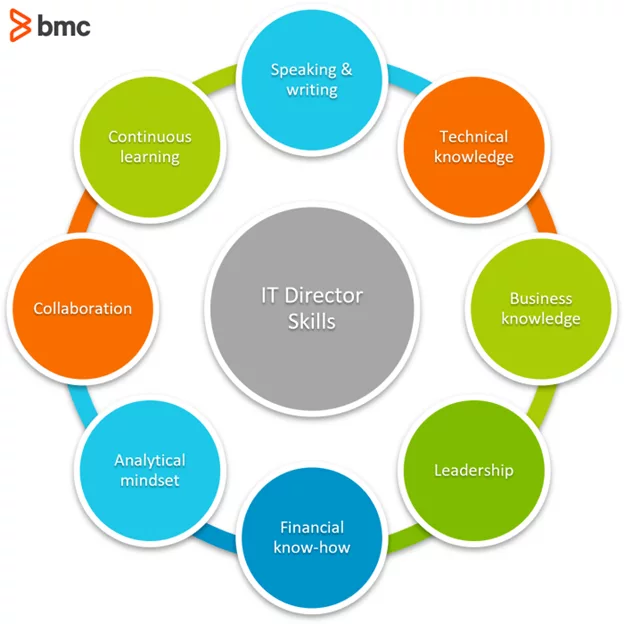In today’s globalized world, international education has become an essential component of higher education. As a result, the role of education abroad directors has emerged as a critical position in universities and colleges. Education abroad directors are responsible for providing students with opportunities to study abroad and gain a global perspective. However, this role requires special skills and competencies to succeed in it. This article will explore the top education abroad director skills required in international education.
Understanding the Role of an Education Abroad Director
Education abroad directors play a crucial role in the internationalization of institutions, providing students with academic experiences outside their home country. Their primary responsibility is to guide students through the study abroad process, from selecting programs to returning home from their journey. Additionally, they must navigate complex policies and regulations regarding international education while also ensuring student safety and compliance.
Key Responsibilities and Expectations
Education abroad directors are expected to have a strong understanding of the needs of international students while also managing relationships with partner institutions. They must have a comprehensive knowledge of international programs, available funding, and the importance of cultural competency in creating opportunities for global engagement. Furthermore, they must create policies and processes that oversee the entire study abroad process, including pre-departure orientation, recruitment, and retention.
One of the key responsibilities of an education abroad director is to ensure that students have access to high-quality academic programs that meet their academic and personal goals. This involves working closely with faculty and staff to develop and promote study abroad programs that align with the institution’s mission and strategic goals. Education abroad directors must also ensure that students have access to resources and support services that will help them succeed academically and personally while abroad.
Another important responsibility of an education abroad director is to promote internationalization on campus. This involves working with faculty, staff, and students to create a campus culture that values global engagement and diversity. Education abroad directors must also work to develop partnerships with international institutions, creating opportunities for faculty and student exchanges, joint research projects, and other collaborative initiatives.
The Importance of Leadership in International Education
Leadership is one of the most critical education abroad director skills in international education. Education abroad directors must have exceptional leadership abilities to foster a positive impact on both students and their institution. They must be comfortable navigating complex international policies and regulations while also maintaining strong relationships with stakeholders. They should also be proactive in identifying problems and creating solutions.
Education abroad directors must be strong communicators, able to articulate the value of international education to a wide range of audiences. They must be able to work effectively with faculty, staff, and students, as well as with external partners such as government agencies, non-governmental organizations, and international institutions.
Finally, education abroad directors must be committed to promoting diversity, equity, and inclusion in all aspects of their work. They must be advocates for underrepresented students, working to ensure that all students have access to international education opportunities regardless of their background or financial means. By promoting diversity and inclusion, education abroad directors can help to create a more just and equitable world.
Essential Skills for Success in International Education
Education abroad directors must possess a range of essential skills to succeed in their position. Here are the top skillsets they need:

Strong Communication and Interpersonal Abilities
Education abroad directors need to communicate effectively with students, staff, and faculty members. This requires excellent interpersonal skills that allow them to build strong relationships quickly. They must also be skilled in conflict resolution and cultural sensitivity to navigate complex relationships across different cultures and backgrounds.
For example, when working with students who come from different cultural backgrounds, education abroad directors must be able to understand and appreciate the unique challenges that each student faces. They must be able to communicate effectively with these students to help them navigate their new environment and ensure that they have a positive experience studying abroad.
Cultural Competence and Sensitivity
Education abroad directors must be knowledgeable about the cultures and societal norms of their students’ host country. They should be able to relate to diverse populations and create an inclusive atmosphere within their institutions. Furthermore, they must be sensitive to the challenges that students face when attempting to adapt to new environments.
One way that education abroad directors can demonstrate cultural competence is by organizing cultural immersion activities for their students. These activities can include language classes, cooking classes, and visits to local museums and cultural landmarks. By providing these opportunities, education abroad directors can help their students gain a deeper understanding and appreciation of the host country’s culture.
Adaptability and Problem-Solving Skills
Education abroad directors must be adaptable and flexible, capable of developing and adjusting plans to accommodate unexpected changes. They must also be adept in crisis management and devising effective solutions to complex problems under extreme pressure situations.
For instance, education abroad directors must be prepared to handle emergencies such as natural disasters, political unrest, and medical emergencies. They must have contingency plans in place and be able to quickly adapt to changing circumstances to ensure the safety and well-being of their students.
Strategic Planning and Organizational Skills
Education abroad directors should have exceptional organizational skills, capable of managing large-scale projects and hitting deadlines effectively. They must be skilled in applying strategic planning to their work, leveraging resources effectively to maximize impact.
Education abroad directors must also be able to manage budgets effectively, ensuring that they allocate resources appropriately to meet their program’s goals. This requires careful planning and attention to detail to ensure that every dollar is spent wisely.
Building a Network in the International Education Community
The success of education abroad directors depends on the ability to build a robust network of resources both internationally and domestically. Here are some tips on building a professional network in the international education community:

The Value of Professional Associations and Conferences
Education abroad directors must take advantage of professional associations and conferences to build a network of support. Attending conferences and networking events can provide access to critical resources, including mentoring and collaboration opportunities. Professional associations, such as NAFSA: Association of International Educators, provide a platform for education abroad directors to connect with colleagues, share ideas, and stay up-to-date on the latest trends in the field. Conferences, such as the Forum on Education Abroad, offer opportunities to attend workshops, participate in panel discussions, and network with colleagues from around the world.
Developing Collaborative Partnerships
Education abroad directors must cultivate strong relationships with their partner institutions, working together to create mutually beneficial opportunities. This involves building trust and establishing open lines of communication. Education abroad directors must also be skilled negotiators, creating partnerships based on shared goals and values. Collaborative partnerships can lead to increased student participation in study abroad programs, as well as expanded opportunities for faculty and staff exchanges.
Additionally, education abroad directors can develop partnerships with local businesses and organizations to provide students with unique cultural experiences. For example, partnering with a local non-profit organization can provide students with the opportunity to volunteer in the community and gain a deeper understanding of the local culture.
Leveraging Social Media and Online Resources
Education abroad directors must use social media and online resources such as LinkedIn, Twitter, and professional blogs to connect with peers, share information, and exchange best practices. Social media platforms can be used to promote study abroad programs, share student success stories, and connect with alumni. Education abroad directors can also join online communities, such as the International Education Professionals group on LinkedIn, to connect with colleagues and discuss industry-related topics.
Online resources, such as the Institute of International Education’s Open Doors report, can provide valuable data and insights on international education trends. Education abroad directors can use this information to inform their program development and marketing strategies.
Building a network in the international education community takes time and effort, but the benefits are immeasurable. A strong network of colleagues, partners, and resources can help education abroad directors navigate the complexities of the field and provide students with life-changing study abroad experiences.
Navigating the Challenges of International Education
Education abroad directors face various challenges in their work. Here are some of the most significant and common obstacles that they encounter in their roles:
Addressing Health and Safety Concerns
Ensuring student safety while abroad is a top priority for education abroad directors. They must work to create policies and procedures that minimize health and safety risks.
One of the ways that education abroad directors address health and safety concerns is by conducting thorough risk assessments before sending students abroad. They evaluate factors such as political stability, crime rates, and access to healthcare. They also work closely with on-site staff to ensure that students are aware of any potential risks and know how to respond in case of an emergency.
In addition, education abroad directors often provide pre-departure health and safety training to students. This training covers topics such as cultural adjustment, emergency procedures, and local laws and customs.
Managing Budgets and Financial Resources
Education abroad directors must be excellent financial stewards, ensuring that their programs are financially sustainable. This requires a thorough understanding of their institutional funding structure and financial regulations.
One of the ways that education abroad directors manage budgets and financial resources is by developing partnerships with local organizations and institutions. These partnerships can provide funding for programs and help to offset costs. Education abroad directors also work closely with financial aid offices to ensure that students have access to funding for study abroad programs.
Another important aspect of managing budgets and financial resources is ensuring that programs are cost-effective. Education abroad directors may choose to offer programs in locations where costs are lower, or they may negotiate lower rates with local vendors and service providers.
Ensuring Compliance with Regulations and Policies
Education abroad directors must navigate complex international regulations and policies. They must stay current on rapidly changing compliance requirements related to student mobility and academic credit transfer to ensure program viability.
One of the ways that education abroad directors ensure compliance with regulations and policies is by working closely with academic departments and faculty. They must ensure that programs meet academic requirements and that credits earned abroad can be transferred back to the home institution.
Education abroad directors also work closely with international education associations and organizations to stay up-to-date on regulatory changes and best practices. They may attend conferences and workshops to learn about new compliance requirements and to network with other professionals in the field.
Despite these challenges, education abroad directors play a vital role in providing students with life-changing international experiences. By addressing health and safety concerns, managing budgets and financial resources, and ensuring compliance with regulations and policies, they help to make study abroad programs accessible and impactful for students.
Conclusion
The role of education abroad directors is evolving, requiring dynamic individuals with a broad range of skills and expertise. Excellent leadership, communications, and interpersonal abilities, cultural awareness, adaptability, problem-solving, strategic planning, and budget management all play a vital role in succeeding in this role. Building relationships in global communities, taking advantage of professional networks, and finding solutions to challenges such as health and safety concerns, managing budgets, and regulatory compliance also make a significant impact. With these skills, the education abroad director will be well-positioned to succeed and contribute significantly to the internationalization of their institution.


